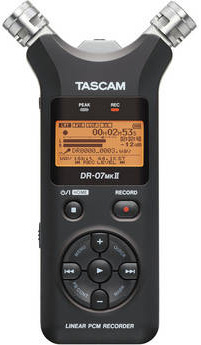Multiband compression is a tool that gives you more control over what gets compressed when you’re, well, using a compressor (see our article What is Multiband Compression for more details). Usually the action of the compressor is universal in terms of the frequencies affected. You give the effect some parameters so that it knows where to kick in (that’s the threshold of signal level that triggers the action), and then you tell it how much to reduce the signal level (turn it down) for each decibel (that’s called the ratio – 1:1 means nothing gets turned down). Then the compression gets applied to any and every frequency that happens to cross the threshold.
But with multiband compression, you can apply different settings for different frequencies.
Here is an article that will show you some ways you can use multiband compression.
http://www.prosoundweb.com/article/in_the_studio_how_to_use_multiband_compression_includes_audio/
Microphone Barbra Streisand Used In Evergreen Scene AKG C-12A
We just saw a clip, on CBS Sunday Morning, of Barbra Streisand singing Evergreen in the 1976 movie A Star Is Born. She is singing into a vintage AKG C-12A (not to be confused with the C12 or C12 VR). These are not manufactured anymore, but I checked eBay and you can get one for the bargain price of $3,899 (my wife said “no”).
Anyway, the whole reason for this post is that the way this mic – a large diaphragm “nuvistor” (a kind of mini-tube that sort of bridged the gap between tube mics and transistor mics) mic – is used in the supposed recording scene between Streisand and Kris Kristofferson. First it shows Barbra singing straight into the mic, lips 3-4 inches away, with no sort of pop filter at all. I understand that it would have obscured her face and all, but for folks who record vocals every day this just causes us to scream – “Holy crap, do you realize how many plosives (p-pops) that would cause and how hard it would be to edit out, especially in 1976?” (see our article on p-pops and plosives here: https://www.homebrewaudio.com/how-to-fix-a-p-pop-in-your-audio-with-sound-editing-software/). Then she put her hand on the base of the mic where it attached to the mic stand. Gah! That would cause boom and rumble! And THEN, Kristofferson puts HIS mitts on the stand and plays “handsies” with her – in the middle of recording! I imagine that recording engineers the world over utters simultaneous and similar protestations when the movie opened.
In real life, a singer using any large diaphragm recording microphone would surely be using a pop-filter, a screen between the mouth and the mic to reduce or eliminate plosives. And if anything (like fondling fingers) touched or bumped the mic or mic stand, the recording would almost certainly have to be stopped because it would be nearly impossible (certainly impractical) to edit out that kind of rumble, boom and bumping.
But other than that…
There are some interesting facts about the AKG C-12A. It was the missing link mic between the tube-based C12 and the transistor-based AKG C 414. It used a new (at the time) miniature tube technology called “nuvistor” which, if the transistor had not become the way of the future for microphone circuitry. Read more about that here: http://www.preservationsound.com/?p=1120
Parallel Compression Tips For Drums
Here is a video showing some tips on how to do a kind of compression when you have drums in your music mix. These tips show something called parallel compression, and it uses Pro Tools. But as is usual with technique videos and articles, you can do this with most any DAW (digital audio workstation) software.
Here is the video:
Tascam DR-07 Portable Digital Audio Recorder On Sale

B&H Pro Audio has a great deal on the Tascam DR-07mkII Portable Digital Audio Recorder right now. The regular price is $149.99, and the sale price is $119.99, the lowest price on the internet!
The reasons that this portable/mobile audio recorder is so awesome include its ability to adjust the two microphones for different stereo recording configurations (X/Y or A/B), as well as the fact that it records both high-quality WAV (16 and 24-bit) or MP3 (32-320 kbps VBR) formats.
It’s perfect for recording interviews, rehearsals, sound-design elements (like sound effects you’d use in video/movie projects), or live music shows. It has a 3.5mm stereo mic/line input so you could record the output of a mixer (great for live performances). It also has the same sized (3.5mm) stereo output (headphone/line) so you can connect additional equipment, even speakers. You can transfer recordings via its mini USB 2.0 port or the microSD or microSDHC cards it records on. IT runs on 2 standard AA batteries, or by USB bus power, or from a USB AC wall adapter.
It is always handy to have a pocket-sized digital recorder and now you can get this awesome one for a huge discount. To get yours, or find out more, CLICK HERE.
Don't Forget About These Pro Tools Stock Plugins
Sometimes when you get something for free, especially if it’s part of a package, you may not value it as much – or you may forget about it entirely. Pro Tools, the industry standard DAW (which stands for digital audio workstation – a fancy way of saying multi-track recording software) comes with a lot of plug-ins, for both effects and virtual instruments.
Here is an article by Graham, identifying three oft-overlooked, but very useful stock plugins.
- The AIR Fuzz-Wah
- The Avid Lo-Fi plugin
- dVerb
See Graham’s article about them here: http://therecordingrevolution.com/2012/08/10/3-underrated-stock-pro-tools-plugins/